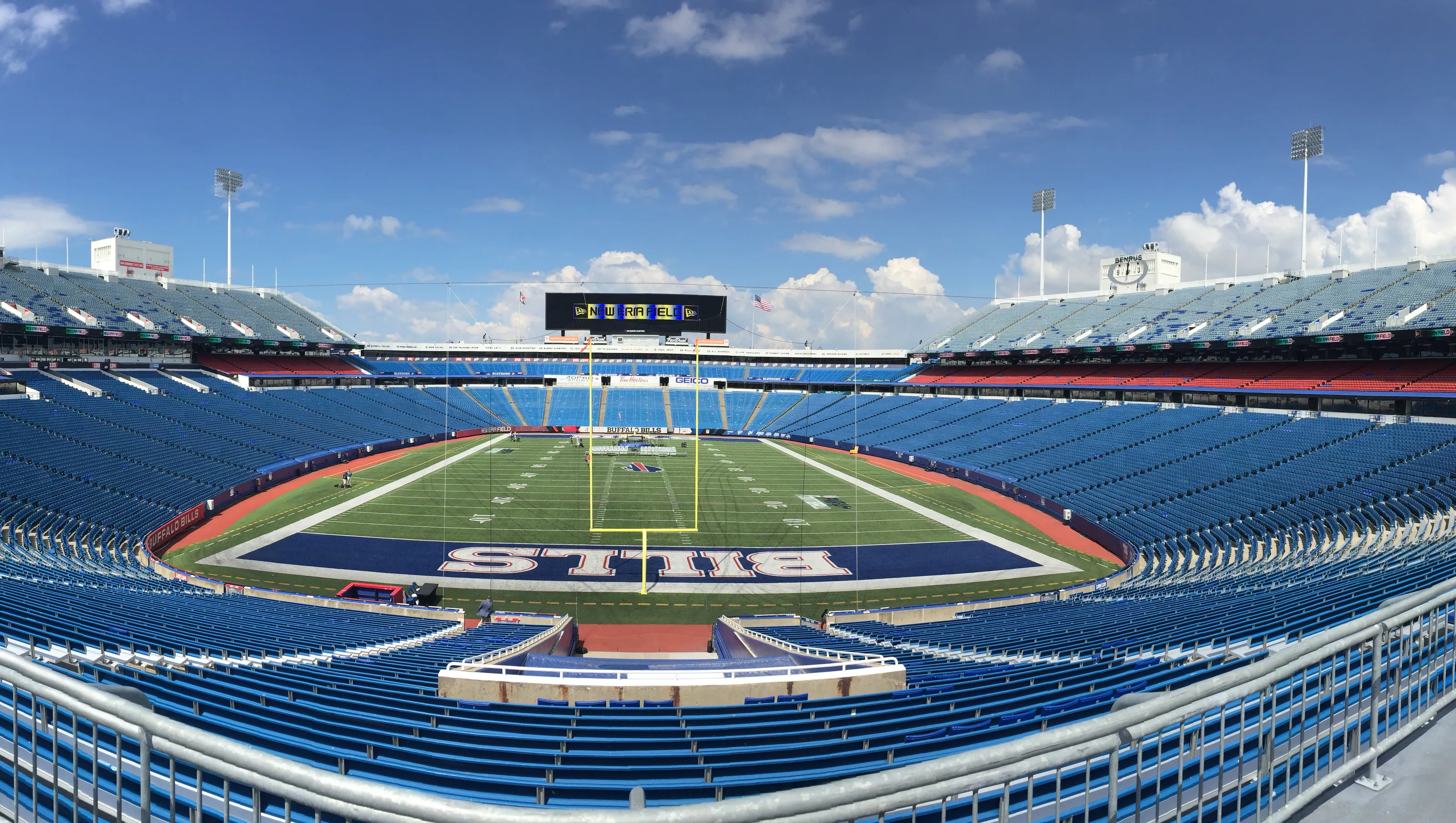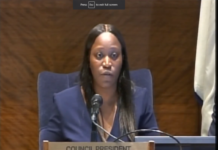
A rendering of New Era stadium in Buffalo, to be paid in part by the taxpayers of New York State
By Dan Murphy
A lawsuit filed by four New York state residents against the proposed taxpayer funding of a new stadium for the Buffalo Bills football team continues to move through NYS Supreme Court, in Albany County.
The cost for the $1.4 Billion New Era stadium’s total pricetag includes $850 Million in public funds, with the State funding $600 Million in construction cots, and Erie County government funding $250 Million. The NFL will give the Bills owner, Terry Pegula, a $200 million loan, and Pegula will fund $350 of the remainding costs.
The NY State funding for the new stadium was included in the state budget passed by the legislature and signed by the Governor in April. Hochul, who comes from Western NY, was instrumental in including the stadium funding in the budget deal.
The lawsuit against the deal, filed in State Supreme Court last month, asked the court to declare the public funding plan “null and void” based on “Article VII-Section 8.1 and Article VIII, Section 1, of the New York State Constitution.” The State of NY, the defendants in the case, have filed a motion to dismiss the suit.
The latest papers, filed by New Yorkers Bob Schulz, Westchester resident Tony Futia, Joshua Trost and William James, argue that in prior case law, the courts “give deference to public funding programs essential to addressing the problems of modern life, unless such programs are patently illegal.” Schulz v State of New York, 84 N.Y.2d 231, 241 (1994).
“Clearly, and without doubt, the New York State Constitution prohibits the giving or lending of State and County money “in aid of any… private corporation … or private undertaking ….” Article VII, Section 8.1 and Article VIII, Section 1. There are no exceptions. No State or County money can be appropriated for any project or undertaking if any part of that appropriation will aid – i.e., help, a private corporation. A private corporation is, by definition, a corporation organized for the profit of its members or in which the entire interest is not held by the state,” states the Memorandum of Law filed by the four New Yorkers.
The legal papers also point out that “the public funds are to be used in aid of a private corporation in the non-essential business of enterainment, including entertaining people from states other than New York.”
Bob Schulz, one of the plaintiffs in the lawsuit said, “The State of New York is a Constitutional Republic. The power of elected officials is limited by the will of the People as expressed in the State Constitution. Elected officials often step outside the boundaries drawn around their power. By appropriating $600M in state funds, and authorizing $250M in county funds to aid the Buffalo Bills, Gov. Hochul and the Legislature have violated provisions of the Constitution that prohibit the use of public funds in aid of private undertakings. We are asking the Court to invalidate those appropriations.”
Westchester resident Tony Futia said, “New York state has been deliberately not teaching generations of children civic education as required by section 801 of the NY State Education Law.”
A recent Sienna Poll found 63% of New Yorkers disapprove the public spending of $600 Million for the new stadium, and opinion columns have largely criticized the expenditure.
Opposition to the public funding of the stadium has come from both sides of the politcal aisle, with fiscal conservatives like Schulz and Futia, and progressive democrats, opposing the expenditure.
State Senate Finance Committee Chair Liz Krueger said, “I’m sorry, this is a terrible way, a terrible way to use the taxpayers’ money.” Assemblyman Ron Kim said that 40 years of data show that public funding of stadiums is “one giant scam in economics.”
The owner of the Buffalo Bills, Terry Pegula is currently worth $5.1 billion. The estimated cost of renovating the existing stadium was for a total cost of $350 Million.





